Sustainable products stimulating business
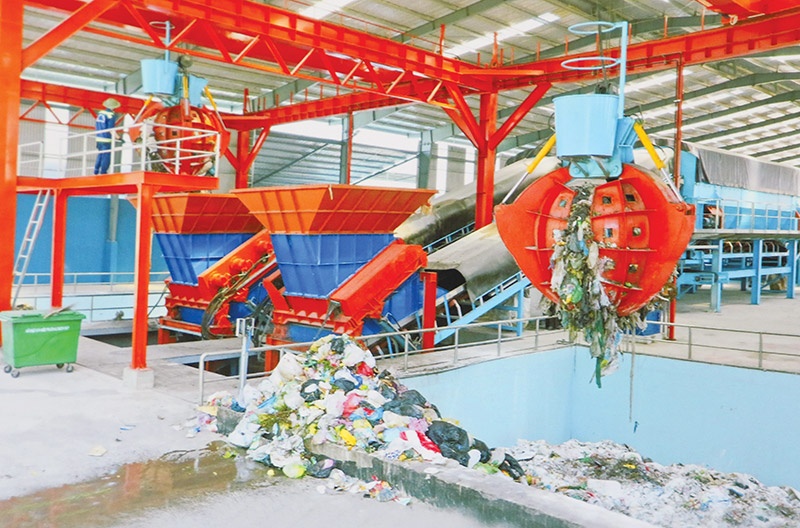 |
| Businesses are discovering new ways to separate, contain, and re-use the waste they produce, Le Toan |
SCG Packaging (SCGP) under Thai industrial conglomerate SCG impressed at last week’s exhibition on the circular economy in Vietnam with a number of environmentally-friendly products, one of which was paper beds. These beds, easily installed and transported, are made entirely of recycled paper and have been provided for many hospitals in Vietnam in recent times.
“This is one of the products demonstrating the responsibility of SCG in the role of a citizen enterprise. We stand ready to bring innovative solutions to Vietnam to help authorised agencies and people,” said Sompob Witworrasakul, general director of Vina Kraft Paper Co., Ltd., a member of SCGP.
Over past years, SGC has also applied high technology to its cement production. Its cement products are energy-saving, with technology helping reduce greenhouse gas emissions by about 115,000 tonnes a year.
Additionally, the technology has also helped SCG reduce 59,000 tonnes of natural resources annually. During the production and consumption process, natural resources like raw materials including natural gypsum and iron ores are used effectively. Input resources are reused from by-products of other industrial sectors instead of being discharged after first use.
Like SCG, Coca-Cola Vietnam has also been pursuing its strategy of saving energy and reducing waste, as part of its sustainable development with a circular economy. Specifically, the company’s Dasani-branded plastic water bottles are now only 12.15g in weight, down from 14.5g. This seemingly small change has saved the company millions of US dollars in material costs.
Coca-Cola Vietnam joined up with Dow Chemical Vietnam and Unilever Vietnam in 2019 to ink an MoU with the Vietnam Business Council for Sustainable Development (VBCSD) to implement the ‘Zero Waste to Nature’ initiative, which has so far seen involvement from many other companies including Nestlé Vietnam, DEEP C, and HEINEKEN Vietnam.
The programme includes the establishment of a centre which focuses on suggesting policies, incentives, and mechanisms for the government to build up secondary material markets, introduce ideal practices from global enterprises to local firms, and then implement initiatives based on the public-private partnership format. This will help attract further participation of enterprises in building an emissions-free economy, creating greater employment prospects, and increasing competition amongst enterprises.
New development model
According to the Organisation for Economic Co-operation and Development, circular business models represent fundamentally different ways of producing and consuming goods and services. They have the potential to drive the transition towards a more resource-efficient and circular economy and, in doing so, significantly reduce the environmental pressure resulting from economic activity. Circular business models, by closing resource loops and by slowing and narrowing resource flows, can reduce the environmental footprint of economic production and consumption.
Experiencing rapid economic growth over the past decades, Vietnam has become one of the production hubs in Asia, and this has also improved the local economic situation, leading to changes in local consumption as well. To continuously sustain this economic growth and to take advantage of the improved local economic situation for creating a healthier and happier society through social and environmental improvements, Vietnam may consider moving from a linear to a circular economic model.
The Law on Environmental Protection, adopted by the National Assembly in 2020, specifically mentions the content of circular economic development. Guiding Decree No.08/2022/ND-CP from January stipulates criteria, a roadmap, and mechanisms to encourage economic development.
The Ministry of Natural Resources and Environment (MoNRE) shall also have the responsibility to coordinate with other ministries, ministerial-level agencies, and provincial people’s committees in formulating and submitting the national action plan for the circular economy to the prime minister for promulgation.
Last year, Vietnam unveiled its strong commitments to tackle climate change and hit net-zero emissions by 2020, emphasising that its resources will be required along with cooperation and support from the international community both in terms of finance and technology transfer.
According to the MoNRE, around 68,000 tonnes of solid waste are discharged on a daily basis by households nationwide, including 38,000 tonnes in urban areas, and 30,000 tonnes in rural areas. For urban solid waste, about 54-77 per cent contain organic substances, and about 8-18 per cent contain plastic and metal, which can be recycled.
Meanwhile, the volume of industrial solid waste discharged by factories in Vietnam is now 8.1 million tonnes per year, excluding 17 million tonnes of ash, slag, and gypsum discharged annually by thermal power plants, and chemical and fertiliser production plants.
Business participation
According to Caitlin Wiesen, resident representative of the UN Development Programme (UNDP) in Vietnam, it is estimated that Vietnam will require $330-370 billion in investments to achieve net-zero emissions by 2050 under the draft National Climate Change Strategy, with significant large up-front investment.
“Here, foreign direct investment (FDI) and companies have a critical role to play in providing technologies as well as human and financial capital. Vietnam has been and continues to be an attractive destination for FDI, and the country is well placed to attract the further investment needed to power a just circular and energy transition,” Wiesen said. “FDI already contributes significantly alongside national investments in renewable energy in Vietnam, including solar, onshore, and offshore wind power.”
On May 18, in the Mekong Delta city of Can Tho, a pilot project sponsored by Dow Vietnam on a model for floating markets in the area was launched, aiming to raise awareness of environmental protection.
Through waste management from the main sources of waste discharged into the Mekong River in Can Tho, the project will help reduce waste from rivers into the sea and contribute to improving the living conditions and preserving the ecosystem by annually reducing 300-400 tonnes of waste in the river and directly helping the lives of over 150,000 local people.
Dow Vietnam president Ekkasit Lakkananithiphan said, “We strongly believe that the results and key learnings of this project would be best practices for the implementation of the Law on Environmental Protection and the ongoing extended producer responsibility mechanism.”
Significantly, the project outcomes would contribute to the Vietnamese government’s targets to reduce 50 and 75 per cent of ocean plastics waste by 2025 and 2030, respectively in the National Action Plan for Ocean Plastic Waste Management to 2030, Lakkananithiphan added.
According to the UNDP, the circular economy is an economic opportunity for Vietnam and investing in governance systems, developing strong institutions and policies, fostering sustainable business and bypassing pollutive industries will help the country rebound to the green economy of the future.
“We believe that by joining our collective efforts, openly sharing data and knowledge will help to shift mindsets, and help frame and adopt a narrative around a circular economy that is tailored to the needs, the history, and the ambitions of the people of Vietnam,” Wiesen said.
However, according to the VBCSD, in order to attract more enterprises to apply the circular economic model in Vietnam, the government needs to offer incentives.
“Aside from support from foreign firms, the government must also have incentives for businesses to apply modern tech in reusing and recycling materials. For example, Russia has been building its circular economy for years, with participating enterprises given incentives on taxes, charges, and land,” said VBCSD chairman Nguyen Quang Vinh.
Witworrasakul of Vina Kraft Paper said although the implementation of a circular economy in Vietnam is starting to take shape, there is still vast potential for application.
“For SCG, we are making efforts to develop innovative products and services in a bid to contribute to Vietnam’s realisation of net-zero emissions by 2050. We have also been applying the circular economic model in production and business,” said Witworrasakul. “Thus products can have a longer life-span and be recycled or reused, helping reduce waste and protect the environment.”
| Tran Hong Ha - Minister of Natural Resources and Environment
Environment and climate issues are always placed at the highest priority position in the agendas of the leaders of the Party, the National Assembly, the government, the country’s development programmes and plans with the highest goals to protect the people’s health, ensure the quality of the living environment, and protect biodiversity and ecosystems. Building a green economy, circular economy has been incorporated into the Party’s guidelines, and the state’s policies and laws. The Resolution of the 13th National Party Congress affirms the policy of “building a green economy, a circular economy, and being friendly to the environment”, and “building a roadmap, mechanisms, policies and laws to operate the circular economy model”. The transition to a circular economy will initially face certain difficulties in the context of Vietnam’s lack of promotion mechanisms and policies and limited resources and technology for recycling and reuse. However, with the participation of the entire political system, the response of the whole society, in which businesses and people are the driving force, the state plays a constructive role, we can trust that could soon accelerate the transition. The Ministry of Natural Resources and Environment, in collaboration with the United Nations Development Programme in Vietnam and a number of international partners, organises the Vietnam Circular Economy Forum 2022 with the theme “Kick-off Conference to Develop the Vietnam National Action Plan towards Circular Economy”. This is the first step to mobilise initiatives from ministries, sectors, localities, international organisations, research agencies, socio-political organisations, especially the business community and people to build a national action plan to implement Vietnam’s circular economy, with the following groups of tasks and key solutions: Firstly, we will concretise regulations in the Law on Environmental Protection, especially those on the responsibilities of manufacturers and distributors in the recovery, classification and recycling. It is also necessary to promulgate mechanisms and policies to give incentives and support to promote the environmental industry, including the recycling industry; promote the development of the market to exchange by-products and waste products so that waste and waste become a secondary resource in the closed-loop system of the new production cycle. We will also promulgate criteria on green public procurement, using products derived from recycled materials. Secondly, there will be a roadmap to replace fuels and products using hazardous materials and single-use products with environmentally friendly fuels and materials, products that use repeatedly, prolonging the useful life of the product. Thirdly, it is needed to develop urban centres, industrial zones, export processing zones, and thermal power centres following a circular model, without emitting waste, emissions and wastewater. Fourthly, we will also promote cooperation relationships to support businesses to access opportunities to receive financial and technological support for the circular economy. Fifthly, we will also raise the awareness and the responsibility of the business community and the people about the circular economy, and the responsibility of sorting waste at source for recycling and reuse. It is also necessary to change consumer behaviour towards environmentally friendly products. | |
| Jariya Chirathivat - Chairwoman, Central Retail Vietnam
Some of our environmental protection and sustainable development initiatives have been successfully implemented in Thailand, such as the “Samui Zero Waste” model that aims to tackle environmental problems on Koh Samui as part of its Creating Shared Value programme. The scope of this model includes initial waste separation at the source to enable benefits from waste, inclusive of creating bio-fertilisers for farmers within the community, and biogas by-products being utilised in schools and colleges. The success story of this model in Thailand could be used as the learning model for Central Retail in Vietnam to refer to and deploy in Vietnam. This not only conveys the message of sustainable consumption, production, and emissions reduction in our business, but it will also affect end-users and customers. Implementing this model also helps realise our vision of contributing to Vietnam’s prosperity and enhancing the quality of life. With this model, we hope to help raise consumers’ awareness. | |
| Sirapassorn Sagulwiwat - Assistant vice president of Sustainable Development C.P. Foods
We ensure the application of high technology in production to provide products that are safe, protect the environment, and reduce labour loss. In factories, we use renewable energy and biogas. The scraps that were just discarded previously are now recycled to bring new value and reduce waste. The waste at the end of one process will be an input for another process, as well as create more jobs for workers and help vulnerable people in society. C.P. has been taking action to reduce the carbon and plastic footprint, including reducing the use of plastic bags, conducting on-farm studies on waste management, using appropriate cartons, and applying our experience gained elsewhere. Particularly, in order to reduce use of plastic bags, C.P. has made changes in product design, packaging, and raw materials to use decomposing material. By 2030, all our packaging will be recyclable, reusable, and completely biodegradable – currently, 98 per cent is already recyclable and reusable. The research department is finding a way to realise this goal as soon as possible. | |
| Saroj Chayavivatkul - President, Thai Beverage Can Ltd.
The role of the private sector is very important. Firstly, we need to look at ourselves and need to make sure that we think the same on the circular economy. Second is that we have a network of suppliers and small businesses that we can help understand the concept of a circular economy, and also help them to learn the proper technology. As a joint venture between Thailand and the US, our company uses tech to make aluminium cans using lighter, and we make sure that we use energy efficiently so that we don’t waste it. Aluminium cans are good for recycling because we can do so many times and don’t use as much energy. Customers are moving more of the products into aluminium cans, so we have to make sure that we continue to expand and support those customers. We see many regulations and policies coming out, so our role is to continue to support the government in this journey. | |
| Tharabodee Serng-Adichaiwit - General manager, Bangkok Bank Vietnam branch
The private sector in Vietnam is very active, as can be seen with increased investment in rooftop solar. Renewables have exceeded targets and, now, the share of renewable energy in Vietnam’s energy mix accounts for almost 25 per cent, which is an amazing result. The most important element for this is the support from the government, coupled with a continuous roadmap and policy guidelines. The private sector will then be able to follow and attain the goal together with the state. As we are a bank and in the service industry, our contributions are not as large as those of the manufacturing industry. However, that does not mean that we cannot contribute. Whenever we can, we turn off monitors or other electronic devices. And we have also been a key actor in renewable energy investments in Vietnam. We are serving all Thai groups investing in Vietnam. So far, we have provided substantial financing to eight solar and wind projects across Vietnam delivering a combined capacity of nearly 845MW and reducing more than 460,000 tonnes of CO2 equivalent per year. | |
| Hoang Duc Vuong - Chairman, Vietcycle Corporation
The management of domestic waste in Vietnam in the past 40 years has not been properly cared for, with scrap taken to craft villages for recycling, causing pollution. For businesses in this country, investment costs for recycling are very large, making competition with recycling craft villages more difficult. I think that if there is a good policy, with the joint support of the community and international organisations, the recycling industry of Vietnam will also develop, because this is the path that must be taken if we want to build a circular economy, contribute to the circulation of waste, and save the cost of importing resources from abroad. Vietcycle has been in the recycling industry for over 20 years, it’s our love and passion. We also participated in the development of the Law on Environmental Protection and in seminars organised by the Government Office so that Vietnam can have a circular economy orientation. We see the policy is innovative and the vision of the government has changed greatly. We fully believe in the new Law on Environmental Protection, as well as the determination of the government. |
What the stars mean:
★ Poor ★ ★ Promising ★★★ Good ★★★★ Very good ★★★★★ Exceptional
Related Contents
Latest News
More News
- Trung Nam-Sideros River consortium wins bid for LNG venture (January 30, 2026 | 11:16)
- Vietnam moves towards market-based fuel management with E10 rollout (January 30, 2026 | 11:10)
- Envision Energy, REE Group partner on 128MW wind projects (January 30, 2026 | 10:58)
- Vingroup consults on carbon credits for electric vehicle charging network (January 28, 2026 | 11:04)
- Bac Ai Pumped Storage Hydropower Plant to enter peak construction phase (January 27, 2026 | 08:00)
- ASEAN could scale up sustainable aviation fuel by 2050 (January 24, 2026 | 10:19)
- 64,000 hectares of sea allocated for offshore wind surveys (January 22, 2026 | 20:23)
- EVN secures financing for Quang Trach II LNG power plant (January 17, 2026 | 15:55)
- PC1 teams up with DENZAI on regional wind projects (January 16, 2026 | 21:18)
- Innovation and ESG practices drive green transition in the digital era (January 16, 2026 | 16:51)

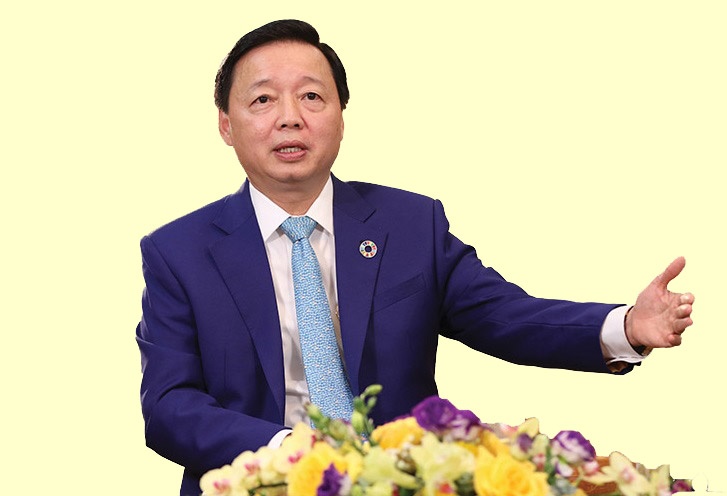

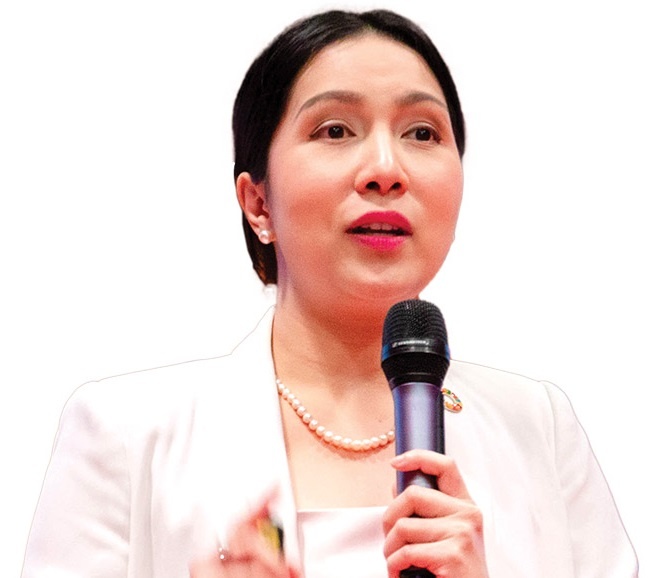
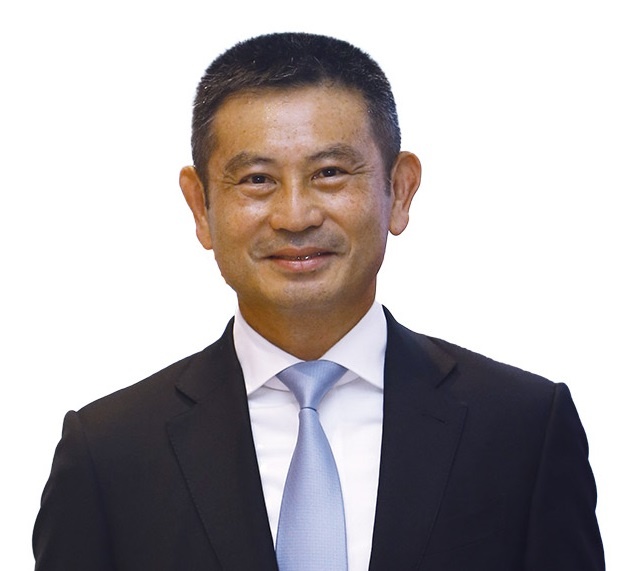
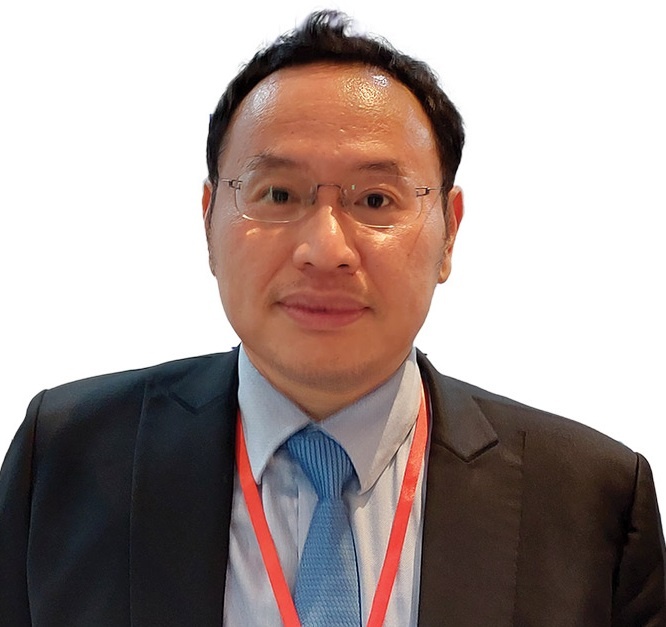
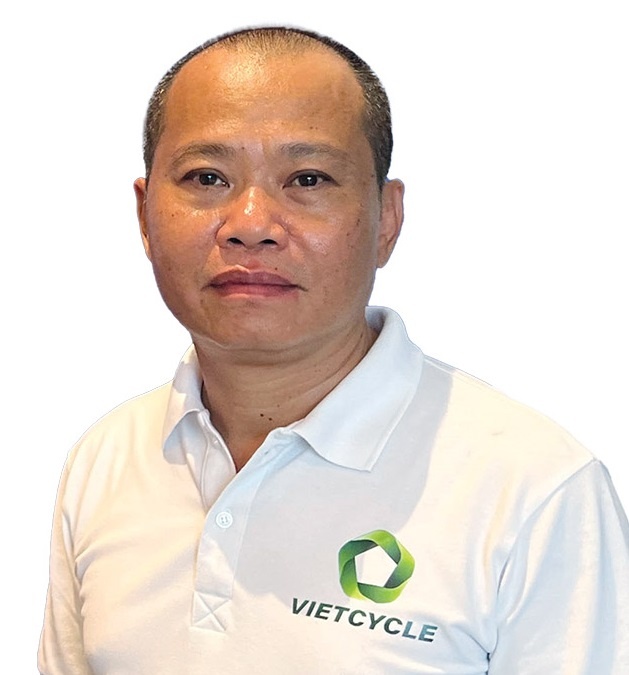
 Tag:
Tag:




















 Mobile Version
Mobile Version